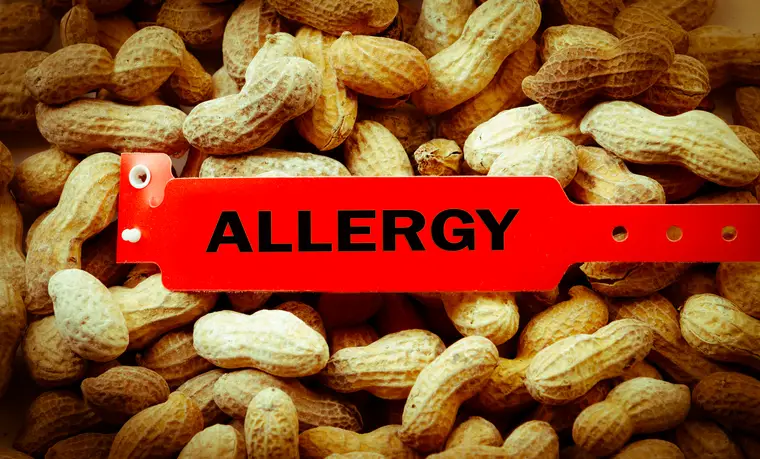Of all food allergies, which affect between 5% and 8% of US children, peanut allergy is the one most likely to cause anaphylaxis, a serious type of allergic reaction. For a child with a peanut allergy, eating one peanut can literally be fatal.
“When you have an allergy,” says Andrew MacGinnitie, MD, PhD, clinical director of the division of immunology at Boston Children’s Hospital, “your body sees the thing you are allergic to as dangerous. So your immune system tries to protect you by causing hives, vomiting, and other symptoms.”
The body does this by releasing histamine and other chemicals that are designed to help your body get rid of whatever is causing the allergic reaction. Hives increase blood flow to an area so that your immune system can get to work. Sneezing helps you get rid of pollen or cat hair in your nose. And vomiting helps get rid of whatever is in your stomach. The problem is that when the reaction is severe, with an outpouring of more of these chemicals than is needed, it can lead to trouble breathing and a dangerous drop in blood pressure. If untreated, this can lead to death.
Re-educating the immune system to lessen the danger
“What we’d like to do,” says MacGinnitie, “is re-educate your immune system so that it doesn’t see peanuts as dangerous. For patients with severe environmental allergies, or severe allergies to insect stings, we can give a series of shots that decrease the symptoms. However, when this was tried to treat peanut allergies, it was too dangerous.”
Instead, a different approach — feeding children who have peanut allergies small amounts of peanut to build tolerance — shows promise. In a series of studies, including one published in The Lancet in September 2019, researchers found that when they gave people with peanut allergies small yet gradually increasing amounts of peanut flour every day, 85% of them were ultimately able to eat 300 mg of peanut protein. That’s about the equivalent of one peanut.
That may not seem like much, but it’s a big deal, says MacGinnitie. “Kids with peanut allergy typically don’t want to eat lots of peanut. They






